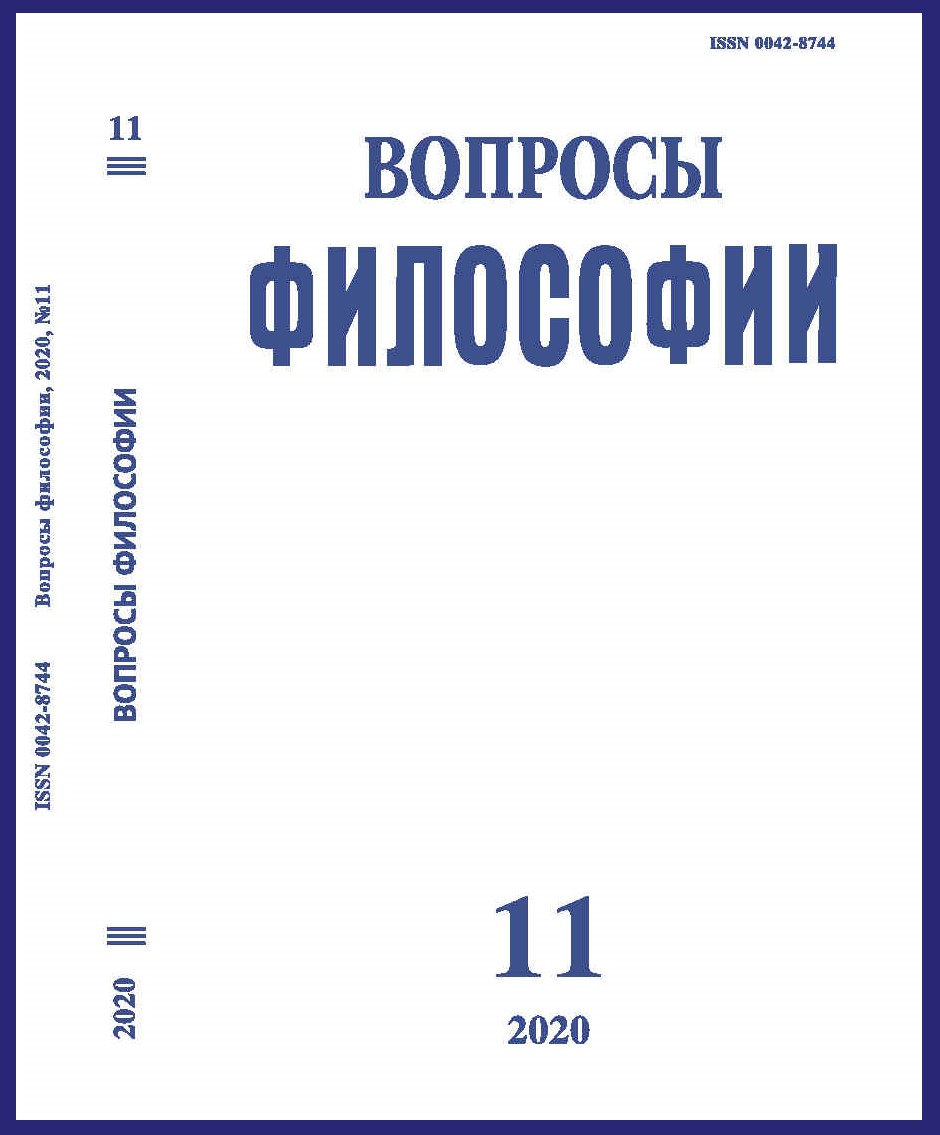Cognitive Computations and Social Organization
DOI:
https://doi.org/10.21146/0042-8744-2020-11-125-128Keywords:
social science, cognitive science, computation, algorithm, law, theory, ontologyAbstract
For natural computing, it is not so much their discrete/continuum nature that matters as their parallel architecture. The latter is a clear, albeit indirect, evidence of the evolutionary origin of natural computational systems. Random associations of cells or individuals, if they lead to an increase in computational power and/or energy efficiency of calculations, are selected and fixed. Therefore, species with a more developed brain substitute those who lag behind in this indicator in certain ecological niches. In the same way, species with more efficient social organization receive evolutionary advantages. In the latter case, the brain volume may no longer be crucial, since computational tasks are distributed over a well-organized network consisting of cognitively loaded individuals. If we accept that social structures and processes are supervenient to cognitive and psychological structures and processes, and the latter are interpreted as (in a sense) computational, then the former would also be naturally described as a kind of distributed computations. I make an attempt to determine, which of the existing concepts of computation are relevant to the task of constructing computational social science. A proprietary definition of computation and the computing system is proposed. Also, considered are the methodological issues of the “naturalization” of computations, as well as those of determining the mechanism for increasing the complexity and hierarchy of natural (in particular, social) computational systems.

